How on earth I ended up spending a week in Gambia
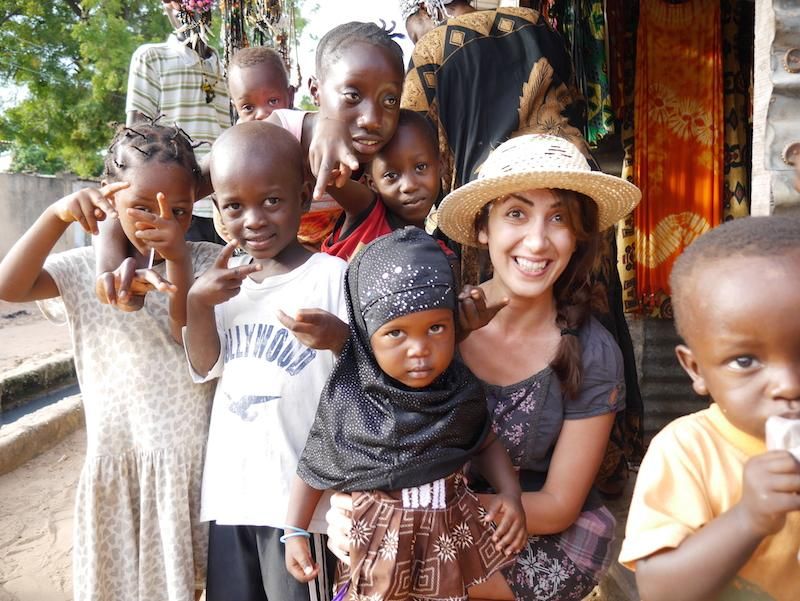
Gambia, known as the smiling coast of Africa, is the smallest country in the continent’s mainland. We might have heard this name before traveling there, but, honestly, we didn’t have any plan to visit the country until we saw an advertisement on wowcher.co.uk.
We (me and Bruno) both started our research; we were not convinced in going there anytime soon, until we went out for breakfast on a Saturday morning in August 2015 ending up in front of a Thomas Cook office afterwards. We went there to ask for more information about Gambia, but in the end, I am not sure how, we had tickets in our hands on our way out. Yes, we booked flights and hotels just like that. We had three months to get myself a visa and get the necessary vaccinations, more than enough time.
Some nationals including Europeans don’t require a visa for a short stay (less than a month), but even if you do need a visa it’s not a big hassle, you only need to bring some cash (£40) and your passport to the Gambian embassy and your visa will be in your hands within 30 minutes.
November 1st, we left the rainy, cold and foggy London and took a 6-hour flight to the smiling coast of Africa. We arrived at the Banjul airport around 2pm, the strong heat hit us as soon as we stepped out of the plane.
The airport didn’t look like any other international airports I have been in before, it was quite small and without air condition. There are only a few flights from/to Banjul every day, you can imagine how small the airport is.
We took our belongings, got out of the airport, and we started to feel like celebrities there and then. We were welcomed by a group of dancers right outside of the airport, while a group of journalists from Gambia National TV interviewed us about how we felt about the country and the reasons why we decided to travel there. It was obvious that I couldn’t give them a fair judgment on my arrival, but I told them I like exploring new destinations. We got in an old bus and started our journey towards the hotels.
Hotels are in touristic area
All the hotels are in the same area, which is exclusively a touristic one next by the beach, without any local residential buildings.
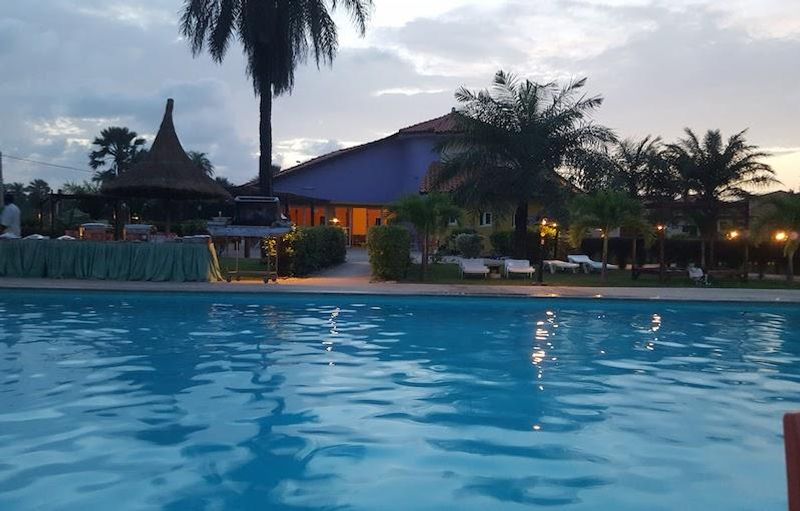
The area where tourists stay are surrounded by restaurants and cafe where local can’t afford to eat. Don’t get me wrong, the restaurants are not expensive at all, for instance an expensive dish would cost around 300 dalasi, which is around £4.50 (about $7). But, the fact is, Gambia is a poor country. Many people don’t have a decent job and whoever works, is usually the only provider for a big family. Above all, the average monthly salary for a decent job is between 1000 to 2000 dalasis (£30 or $44), therefore spending 200 or 300 dalasis for a meal is way too much for them.
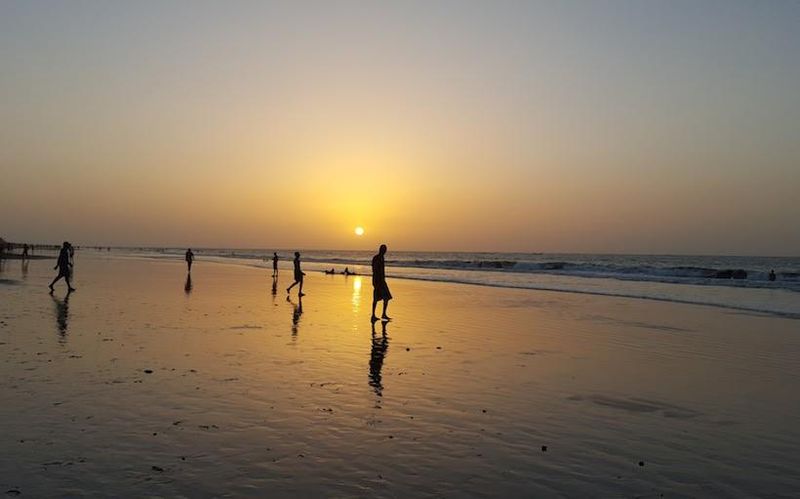
Most of the restaurants and hotels are run by Westerners, especially Europeans. But, staffs are locals. Gambians like tourists, since the tourism is the main source of income for many families.
A week in Gambia, full of adventures and surprises
We arrived there on a Sunday when locals spend their time on the beach. We definitely didn’t want only to stay in the hotel and get tan by the swimming pool.. We were in Africa where we could learn about a new culture and meet new people. So, we started strolling around the beach, where we were stopped many times by young people who were greeting us. Some only welcomed us, while others wanted to have a small talk, some tried to sell us something and few wanted to know us and be friends. We went out with a few of them. When you go out with the locals you should keep in mind that they can’t afford having dinner or drinks with you, so if they join you in a restaurant without ordering, you might want to offer them something, which won’t be very expensive anyway.

Furthermore, we avoided to book tours from the travel agency, we hired a local guide instead, his name is Omar, and a taxi driver to explore around, learn about the custom and visit natural attractions. We believe this is the decent way to help the Gambian economy, rather than paying up to 3 to 5 times more to the hotels agency, considering that the money would probably go back to the western countries as profit.
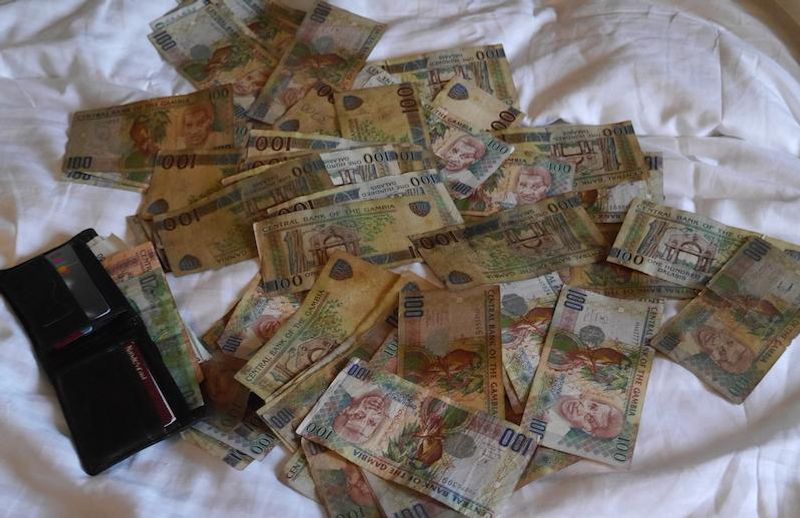
You might think it would be risky to trust the locals, but I can assure you it is not. Gambia is a safe country, they might be poor but they are rich inside. We carried a lot of cash (“a lot” for Gambian standards) without being worried about being robbed. There are many Western Union kiosks where you can exchange your money without any serious security or theft alarm.
Making Friends in Unavoidable
The day before we left Gambia, our guide, Omar, invited us to his place. He lives in a room within a compound. Actually, he shares his room with three other people and more than 10 families live in his compound. Usually, when you are invited to a friend’s home, you would bring a gift. We have been told that the best favour to do for Gambians is bringing some “rice”. Therefore, we brought 50kg rice and two packs of candies for children who live in Omar’s compound. I only mentioned the amount of rice to tell you not to bring a small bag of rice, since Gambians live together and eat together.
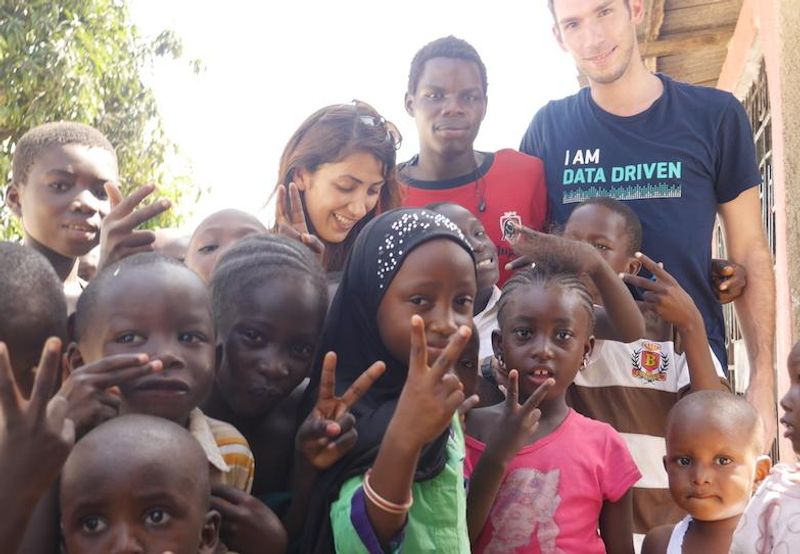
We passed a small yard to enter Omar’s room, where there were many children. We gave them candies, they looked very excited to see us. For them we were different, because of our skin colour. A baby touched my skin and started crying, she was scared, she might have not seen white people before and thought we were from a different planet.
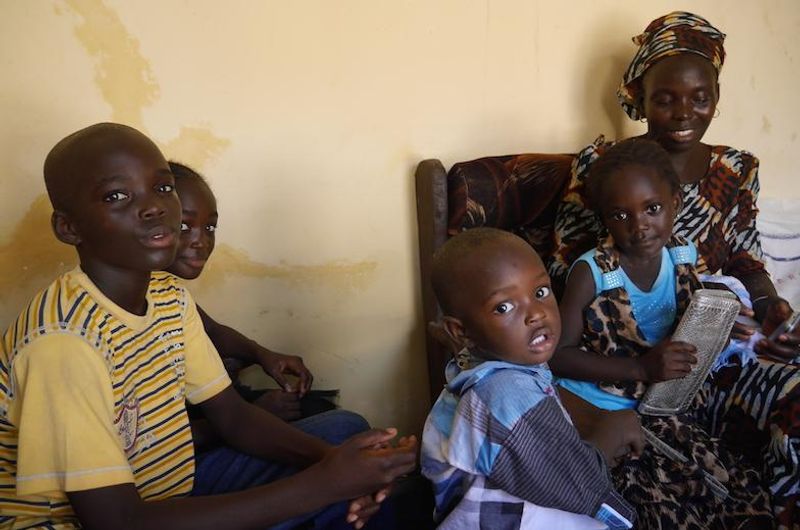
We arrived to Omar’s room. Omar has a job with which he can afford to have electricity, but most of the people don’t have that. Omar’s sister was waiting for us with her 4 children. She is the second wife of her husband. The other wife has five children and they all live together. Now, you can estimate how big the Gambian families are. Gambian used to have as many wives as they could feed in the past. But, since Islam and Christianity came to the country, muslims can now have up to four wives and christians only one.

Omar’s sister cooked us "Domada", my favourite Gambian dish. There were a few plastic plates, and Omar told us that locals use cutleries and plates only for foreign friends coming to visit, because they usually eat all together in a pan with their hands. Food was really tasty, and after lunch, I was thirsty, but they knew we couldn’t drink their water, because it contains germs we are not used to and we would be sick afterwards. The water was not clear at all; you should always drink bottled water in Gambia to avoid being sick and ruin your stay.
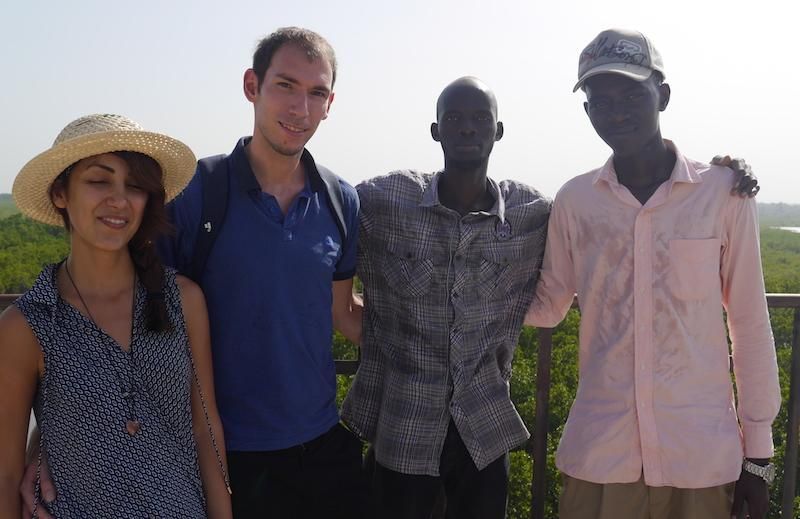
We left Gambia with a lot of unforgettable memories; travelling to Gambia was unlike other trips I have had before. It was like traveling through time into the past, where there was no technology. The trip made me want to go more and more to unpopular countries.
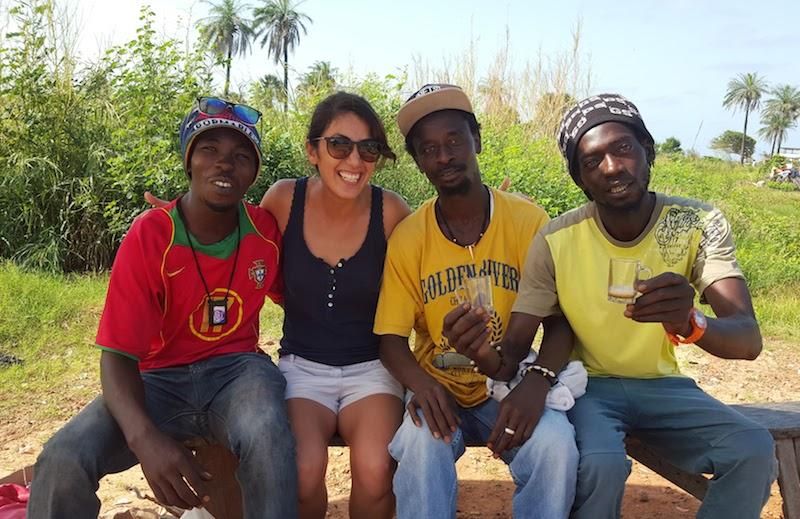
You can read more about Gambia in my future posts.

